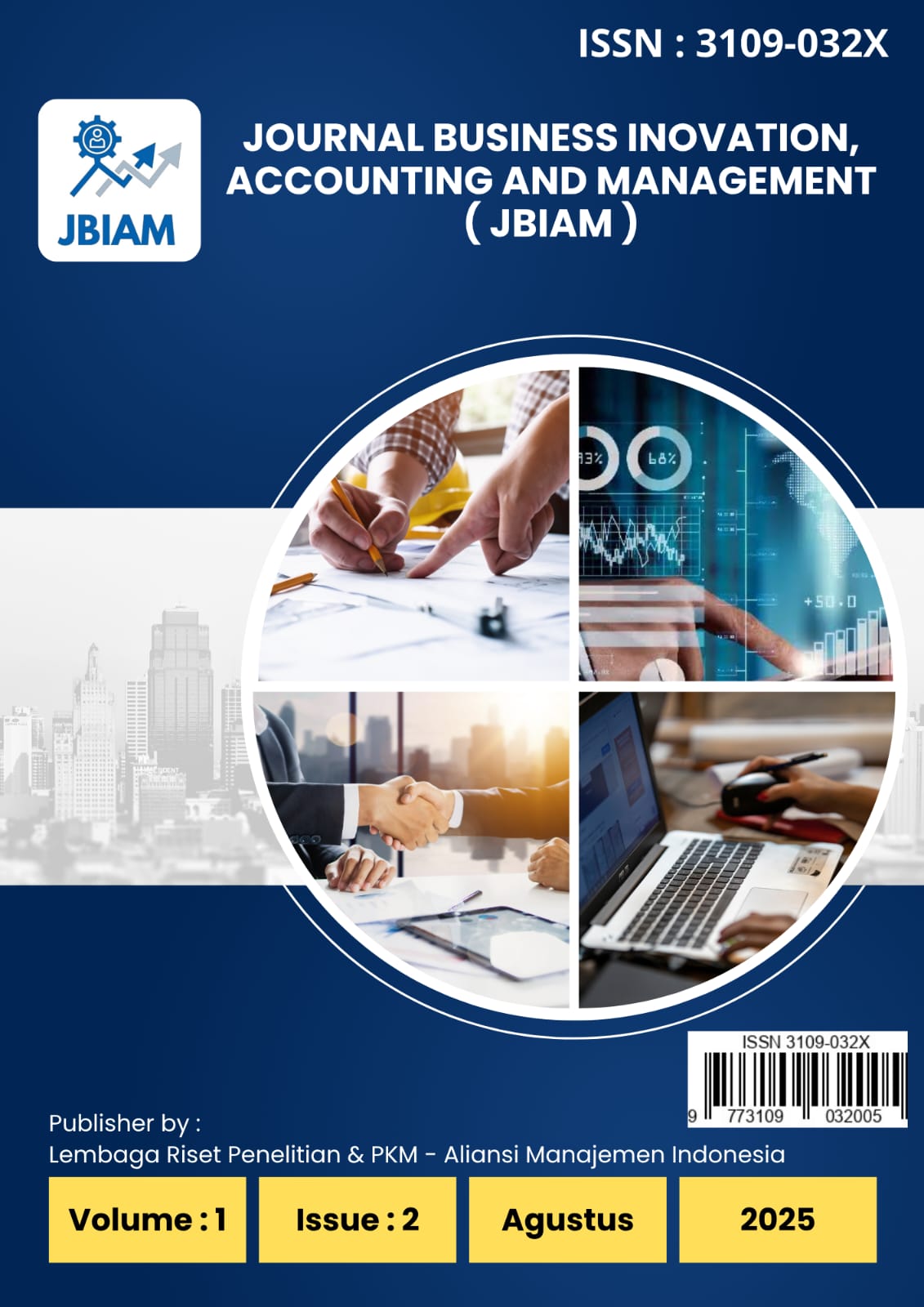The Role of Credit Unions in Realizing the Strength of the Community Economy and the Resilience of HR: A Systematic Literature Review
Main Article Content
Abstract
Changing the public's mindset is crucial for developing the nation's superior human resources, including financial literacy. Public trust in financial institutions is a key factor in people's financial borrowing/investment. The phenomenon of online loans (Pinjol) since Covid-19 is quite worrying. Several studies have examined both positive and negative aspects. A gap exists in the public's interest in online loans (Pinjol) alongside other microfinance (MF) options. The second gap is low financial literacy in the community. This gap is addressed by the novel concept of the MF Credit Union (CU), which mandates financial literacy for prospective members. The role of CU in shaping the resilience of superior human resources is to create an understanding of literacy. The role of CU is not only savings and loans, but also community empowerment with a cultural approach, which is a distinctive feature of CU compared to other MFs. The research method is a Systematic Literature Review (LSR). LSR has 5 stages: reviewing, classifying, and systematically reviewing journals. References to 20 journals from 2020 to 2024. Research results: the role of MF for families/communities: 50%. MF maximizes its benefits for member solidarity: 50%, MF overcomes family finances in the global crisis: 50%, empowering developing country communities: 65%. Non-financial assistance (training, human resource development, entrepreneurship: 15%). Locus in Indonesia, Ghana, Africa, India, Vietnam. Conclusion: CU as MF plays a role in empowering the community's economy, especially the underprivileged, CU has a special financial literacy to change and shape the community's mindset in financial management so as to create superior human resource resilience.
Downloads
Article Details
Section

This work is licensed under a Creative Commons Attribution 4.0 International License.
References
Almehdawe, E., Khan, S., Lamsal, M., & Poirier, A. (2021). Factors affecting Canadian credit unions’ financial performance. Agricultural Finance Review, 81(1), 51–75. https://doi.org/10.1108/AFR-06-2019-0065
Baffoe, A. D. A. R. R. I. (adrri) J. E.-I. ; P. B. A. D. A. R. R. I. A. D. A. R. R. I. ; K. F., Boateng, S., & Teye, P. Y. (2021). Modeling the Determinants of Credit Delinquency Among Credit Unions in Rural Communities in Ghana. In Africa Development and Resources Research Institute Journal (Vol. 30, Issue 2). www.adrri.org
Bonang, D. (2019). PENGARUH LITERASI KEUANGAN TERHADAP PERENCANAAN KEUANGAN KELUARGA DI KOTA MATARAM. https://doi.org/10.32505/j-ebis.v2i1
Cucoindo. (2022). cucoindo.org/lima-pilar-credit-union.
Djadjuli, O. : R. D. (2018). PERAN PEMERINTAH DALAM PEMBANGUNAN EKONOMI DAERAH.
Firdaus, M., & Kamello, T. (2020). The Role of Microfinance Institutions in Supporting the Development of Micro, Small And Medium Enterprises.
Glass, J. C., McKillop, D. G., & Quinn, B. (2014). Modelling the Performance of Irish Credit Unions, 2002 to 2010. Financial Accountability and Management, 30(4), 430–453. https://doi.org/10.1111/faam.12041
Indarti, N., Merc, C., & Doktor Manajemen Kampus Jakarta, P. (2022). Publikasi dengan Kajian literatur sistematis: Disampaikan pada Webinar Systematic Literature Review (SLR) dan Conceptual Paper. https://s.id/nurulindarti
Kusumajati, T. O. (2021). Analisis Skala Ekonomi dalam Kerangka Optimalisasi Kinerja Credit Union Indonesia. In Journal of Business Management Education | (Vol. 6, Issue 3).
NCUA. (2005). History of Credit Union.
Noor, M. (2011). PEMBERDAYAAN MASYARAKAT. In Jurnal Ilmiah CIVIS: Vol. I (Issue 2).
Santi, M., Tinggi, S., Islam, A., & Tulungagung, M. (2019). Peran Pinjaman Dana Berbasis Online melalui aplikasi terhadap perekonomian Indonesia. https://money.kompas.com/read/2017/07/04/190411926/analisis.data.dalam.fintech.?page=all,
Savitri, A., Syahputra, A., Hayati, H., & Rofizar, D. H. (2021). Analisis Pengaruh Kualitas Pelayanan Terhadap Kepuasan Pelanggan. Jurnal Ekonomi Manajemen Dan Bisnis, 22(2).
Sharma, A. (2020). A LITERATURE REVIEW ON THE CONTRIBUTION OF MICROFINANCE INDUSTRY IN LEVERAGING THE ECONOMIC STANDARD OF SOCIETY. In PJAEE (Vol. 17, Issue 7).
Simamora, D. H., Makaliwe, W. A., Mardanugraha, E., Kemala, Z., & Murad, N. (2023). FACTORS AFFECTING THE FINANCIAL PERFORMANCE OF CREDIT UNION IN INDONESIA.
Sutiyo, Pitono, A., Raharjanto, T., & Sinaga, J. B. B. (2020). Woman Microfinance in Indonesia: Present Status and Future Direction. International Journal of Rural Management, 16(1), 105–124. https://doi.org/10.1177/0973005219898922
Thanh, L. B. L. M. B. A. (2020). The Role of Microfinance in Women Empowerment: Global Sustainable Perspectives in the Case of Vietnam.
Upreti, P. (2015). Factors Affecting Economic Growth in Developing Countries. In Major Themes in Economics (Vol. 17). https://scholarworks.uni.edu/mtieAvailableat:https://scholarworks.uni.edu/mtie/vol17/iss1/5
Yasin, M. Z. (2020). THE ROLE OF MICROFINANCE IN POVERTY ALLEVIATIONS: CASE STUDY INDONESIA. In Airlangga International Journal of Islamic Economics and Finance (Vol. 3, Issue 2). http://www.novapdf.com/

